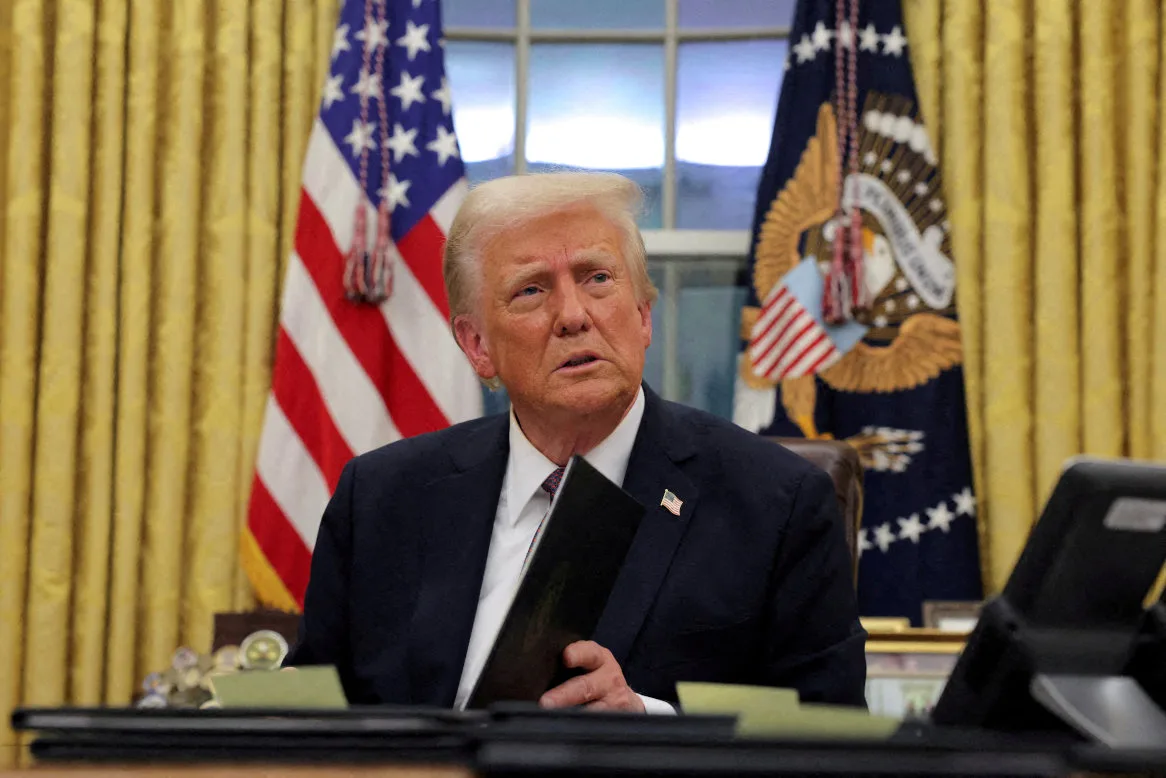Washington, May 5, 2025 – The Europe Today: In a dramatic expansion of his trade policy platform, former U.S. President Donald Trump announced Sunday that he has directed the Department of Commerce and the Office of the United States Trade Representative (USTR) to begin implementing a 100% tariff on all foreign-produced films imported into the United States.
The announcement, made via a post on Trump’s social media platform Truth Social, marks a significant departure from conventional trade policy by extending protectionist measures to the global entertainment sector.
“The Movie Industry in America is DYING a very fast death. Other Countries are offering all sorts of incentives to draw our filmmakers and studios away from the United States,” Trump wrote. “Therefore, I am authorizing the Department of Commerce, and the United States Trade Representative, to immediately begin the process of instituting a 100% Tariff on any and all Movies coming into our Country that are produced in Foreign Lands. WE WANT MOVIES MADE IN AMERICA, AGAIN!”
The proposed tariff would apply to films classified as intellectual property—a category not traditionally covered under tariffs that apply to physical goods. Trade experts note that such a move would be unprecedented and legally complicated, as most films are treated as services under international trade law. While tariffs may not be directly applicable, other mechanisms—such as regulatory barriers or tax-related measures—could be explored to achieve similar effects.
Trump’s statement follows years of complaints from U.S. filmmakers and politicians about the growing trend of film and television production relocating overseas, particularly to cities such as Toronto, Vancouver, and Dublin, where governments offer attractive tax incentives. California Governor Gavin Newsom recently proposed a large tax credit to counteract this trend and revitalize film production in Hollywood.
“Hollywood, and many other areas within the U.S.A., are being devastated,” Trump asserted, framing the issue as not only economic but also a matter of national security. “This is a concerted effort by other Nations and, therefore, a National Security threat. It is, in addition to everything else, messaging and propaganda!”
Despite Trump’s claims, analysts caution against overstating the industry’s decline. While the U.S. box office has yet to fully recover from the pandemic’s impact—with domestic gross failing to surpass $9 billion annually since 2019—the sector has made significant strides. Streaming platforms, though initially unprofitable, are beginning to yield returns, with Disney+ and Max both recently reporting their first profits.
Nonetheless, a broad tariff policy on foreign-made films may present economic challenges for the U.S. film industry itself. Many American productions are shot abroad to reduce costs, leverage international talent, or access location-based subsidies. Imposing blanket tariffs could inadvertently penalize U.S. studios that outsource production, potentially increasing production costs and limiting creative flexibility.
Trump has previously introduced sweeping tariffs, including a universal 10% tariff on most imported goods, a 25% duty on steel and aluminum, and a 145% tariff on certain imports from Canada. While these measures have largely targeted physical goods, Sunday’s announcement represents a shift toward broader retaliatory action in the services sector.
The USTR and Department of Commerce have yet to issue formal statements outlining how the proposed policy would be implemented or whether it would comply with existing international trade agreements.
The move is expected to draw scrutiny from industry stakeholders, trade experts, and international partners in the weeks ahead.


